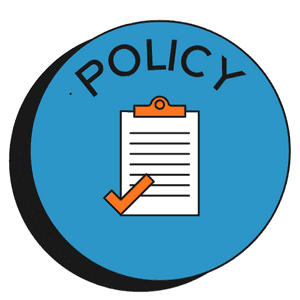Workforce management is effectively resource management. In certain industries, this includes the management of expenses, and expense reimbursement. When this is the case, most businesses have an expense reimbursement policy. This policy dictates how employees will be reimbursed for business-related expenses that are critical to them completing their job. Having a well-crafted expense reimbursement policy is critical in promoting transparency and ensuring fairness in the workplace. It also protects businesses from the expense program being exploited, which can lead to increased costs. We break down what an expense reimbursement policy is, why you need it, and how to create it below.

What is an Expense Reimbursement Policy?
An expense reimbursement policy is a set of guidelines that stipulates how an organization will reimburse employees for expenses incurred on behalf of the company. The policy can include a variety of business-related expenses, such as travel, meals, accommodation, or office supplies.. It outlines the process for submitting expense reports, the time frame for reimbursement, and the documentation needed to support the claims. Moreover, it clarifies which expenses are reimbursable and those that are not, thus eliminating ambiguity and potential misunderstandings. Understanding what this policy is, is the first step to ensuring you are effective in your practices.
Why Do You Need an Expense Reimbursement Policy?
Having an explicit expense reimbursement policy is crucial for several reasons.
Transparency
Firstly, an expense reimbursement policy promotes transparency. An effective policy establishes clear guidelines on what employees can claim and how. Employees are less likely to misuse company funds if they know what is and isn’t acceptable.
Efficiency

Secondly, it enhances efficiency. With a clear policy in place, employees spend less time questioning what expenses are reimbursable, and the finance department spends less time handling queries and disputes. The process becomes more streamlined, saving the company time and resources.
Compliance
Lastly, an expense reimbursement policy helps in maintaining legal compliance. Various countries and states have laws concerning employee reimbursement, and a well-structured policy ensures that your company is abiding by these laws, thus avoiding potential legal issues.
When you consider these factors, along with the amount of money that businesses spend on expense reimbursement, it’s easy to see why a policy is necessary. On average, companies process around 51,000 expense reports annually. This results in businesses worldwide spending roughly $500,000 and nearly 3,000 hours each year rectifying mistakes in these reports.
The Impact of a Poor Expense Reimbursement Policy
A poorly formulated or non-existent expense reimbursement policy can have serious implications on workforce management. Without a clear policy, employees might feel uncertain about what they can claim, leading to hesitation in incurring necessary business expenses. This can hamper their productivity and overall performance.
Moreover, ambiguity in the policy can lead to disputes and decreased employee morale. If employees feel they’re not being fairly reimbursed, or if they perceive a lack of transparency, they can become dissatisfied. and a decline in workplace harmony. In extreme cases, it may even result in legal disputes, damaging the company’s reputation and potentially incurring significant costs.
What Expenses should you reimburse?
A business should cover expenses that are necessary and directly related to the conduct of its operations. These typically include:

- Travel expenses: These are expenses incurred by employees when traveling for business purposes. They may include airfare, car rentals, mileage for personal vehicle use, public transportation, tolls, and parking fees.
- Accommodation and meals: If an employee needs to stay overnight for a business trip, the cost of the hotel and meals are typically covered. There may be a daily limit or per diem set by the company.
- Supplies and equipment: Businesses should cover the cost of necessary supplies and equipment for employees to perform their job. This can range from office supplies like pens and paper, to more substantial equipment like computers or specialized machinery.
- Professional development: Businesses often cover expenses related to employee training, certifications, and professional development courses. This can include registration fees, course materials, and travel expenses if the course is not local.
- Subscriptions and memberships: This could include subscriptions to industry-related publications, memberships in professional organizations, or software licenses that are necessary for the employee’s job.
- Entertainment and client meetings: If an employee is entertaining a client or potential client, the cost of meals, drinks, or even event tickets may be covered.
Other considerations
Remember, what expenses a business chooses to cover can vary greatly depending on the industry, the specific role of the employee, and the company’s financial resources. It’s also important to note that just because an expense is covered, it doesn’t mean it’s automatically reimbursable. The expense must still fall within the guidelines set forth in the company’s expense reimbursement policy.
Additionally, in some jurisdictions, businesses are required by law to cover certain employee expenses. Therefore, it’s essential for businesses to consult with legal counsel or a knowledgeable HR professional when creating their expense reimbursement policies to ensure they are in compliance with all relevant laws and regulations.
How to Make an Expense Reimbursement Policy
Creating an effective expense reimbursement policy involves several steps.

1. Define Reimbursable Expenses: Clearly outline which expenses are eligible for reimbursement. This may include travel, meals, accommodation, and other work-related expenses as mentioned above.
2. Specify Documentation Requirements: State the type of documentation required to support expense claims. Generally, this includes original receipts or invoices, but your policy should specify any additional requirements.
3. Establish a Submission Process: Determine how employees should submit their expense reports. This could be through an online system, email, or physical forms.
4. Set a Reimbursement Timeline: Indicate when employees can expect reimbursement after submitting their expenses. This helps to manage expectations and reduce queries to the finance department.
5. Incorporate Approval Procedures: Define who is responsible for approving expense claims and the process they should follow. This promotes accountability and transparency.
6. Review and Update Regularly: Laws and business needs can change, so it’s important to regularly review and update your expense reimbursement policy to ensure it remains relevant and compliant.
So, an effective expense reimbursement policy is a critical component of successful workforce management for any business. By establishing clear guidelines, promoting transparency, and ensuring fairness, you can enhance employee satisfaction, increase efficiency, and maintain legal compliance.





